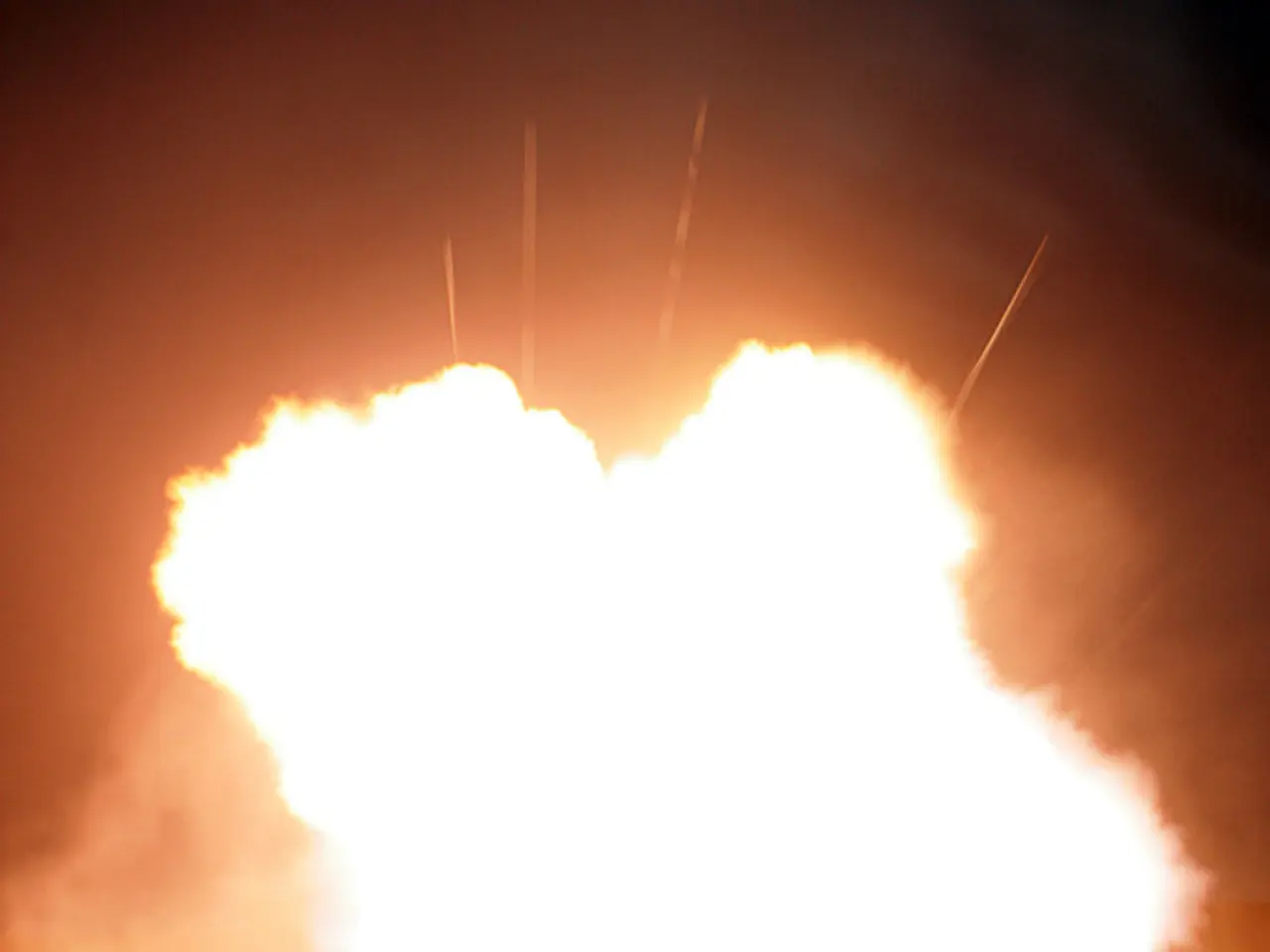Fireworks Accidents Sending Individuals to the ER: A Look at Three Common Incidents
With the approach of summer and the Fourth of July celebrations, it's essential to prioritize safety when handling fireworks. To prevent common firework injuries in children, such as burns, blast injuries, and eye injuries, key safety precautions include adult supervision, protective eyewear, and maintaining a safe distance.
Adult Supervision is of utmost importance. Children should never handle fireworks on their own. Adults must be the only ones lighting fireworks and continuously supervise children during any firework activity to prevent accidental injury or misuse.
Wearing Protective Eyewear is crucial when near fireworks, especially for those handling them. ANSI Z78.1+ rated polycarbonate lenses are recommended to help prevent eye injuries from sparks, debris, or accidental blast effects.
Maintaining Safe Distance is another vital precaution. Children should always be kept at a safe distance from the ignition site of fireworks. For ground-lit fireworks, a distance of approximately 35 feet is advised. Observers, especially children, should never stand close to fireworks as this reduces the risk of blast or debris injuries.
Additional important precautions include never allowing children to hold lit fireworks or sparklers, never pointing or throwing fireworks at people or animals, never re-lighting “dud” fireworks, wearing flame-retardant or fireproof clothing to minimize burn risks, and keeping a fire extinguisher, fire blanket, or water hose nearby in case of fire emergencies.
In case of injury, immediate action includes cleansing burn areas with water and seeking emergency medical evaluation, as fireworks injuries can be both thermal and chemical in nature.
Promoting safer alternatives, such as attending public fireworks displays by professionals rather than using consumer fireworks at home, significantly reduces the injury risk.
In 2023, 9,700 people were sent to emergency rooms in the U.S. due to fireworks-related injuries, and eight people died. Burn injuries from fireworks are usually flash injuries and are not always severe, but can still be painful. The most injured body parts in 2023 were hands and fingers (35%), the head, face and ears (22%), and eyes (19%). Bottle rockets caused another 800 injuries in 2023.
Eye injuries from fireworks can cause vision damage, sometimes permanently. More serious eye injuries can result in cataracts, retina detachment, and vision impairment or blindness. Sparklers, despite their small size, can still cause severe burns due to their high temperatures. In 2023, about 700 injuries caused by sparklers were reported to the ER, out of a total of 9,700 fireworks-related injuries.
By following these measures—adult supervision, protective eyewear, safe distances, and careful handling—you can greatly reduce the risk of burns, blast, and eye injuries in children during firework use. It's essential to prioritize safety to ensure a fun and injury-free celebration for all.
- Promoting workplace-wellness discussions about firework safety can help prevent accidents.
- Medical conditions such as chronic-diseases like diabetes and chronic-kidney-disease may require special considerations when handling fireworks.
- COPD (chronic obstructive pulmonary disease) patients should be cautious around respiratory conditions caused by fireworks.
- Digestive-health issues might also be exacerbated by the consumptions of foods during Fourth of July celebrations, not just firework injuries.
- Eye-health precautions are necessary for all participants in firework activities, with or without known vision problems.
- Hearing sensitivity, although not directly due to fireworks, should also be considered, as loud explosions can cause temporary or permanent hearing loss.
- The importance of health-and-wellness extends beyond fireworks to overall personal safety and wellbeing.
- Fitness-and-exercise regimes aid in maintaining a stronger body to handle minor firework injuries if accidents occur.
- Alzheimers-disease patients may struggle to understand firework safety precautions, so additional care must be taken when supervising them.
- Autoimmune-disorders might affect the body's response to firework-related chemicals or infections, requiring extra caution.
- Mental-health conditions such as anxiety can be triggered by loud noises and unexpected stimuli, making it essential to help those individuals manage their triggers during firework displays.
- Skin-care is crucial to protect against firework sparks and debris, which can cause burns and rashes.
- Therapies-and-treatments can help alleviate firework-related injuries, minimizing discomfort and promoting a speedy recovery.
- Multiple-sclerosis patients should avoid prolonged exposure to the cold weather often associated with Fourth of July events, as it can worsen symptoms.
- Migraine sufferers may experience increased symptoms due to bright lights and loud noises during fireworks, necessitating additional care and planning.
- Cardiovascular-health conditions must be considered when engaging in physical activities related to sports during the summer months.
- Psoriasis patients should use appropriate skin-care products and covers to prevent flare-ups when attending outdoor events such as Fourth of July celebrations.
- Medicare coverage may apply to firework-related injuries, so it's essential to understand policy details to avoid financial burdens.
- CBD oil has been suggested as a potential treatment to help manage anxiety and insomnia caused by fireworks, but more research is needed to confirm its efficacy.
- Rheumatoid-arthritis sufferers should take special care to minimize joint pain and inflammation during summer activities, including firework viewing.
- neurological-disorders like Parkinson's disease can be affected by changes in temperature and noise levels common during firework displays.
- Breast-cancer survivors might need additional support and precautions to ensure they remain safe during physical activities like soccer, baseball, or football.
- Skin-conditions like sunburn and heat rash can occur during prolonged sun exposure, necessitating appropriate sunscreen, hydration, and shade during sports events.
- Sports, such as football, soccer, basketball, baseball, hockey, golf, and even mixed-martial-arts, can experience an increased risk of injury during the summer months due to dehydration and fatigue related to the heat.
- Professional sports organizations like the NFL, NBA, WNBA, MLB, NHL, and NCAAs have firework safety regulations in place for their events to minimize injury risks.
- Sports-betting platforms also emphasize the importance of firework safety, scheduling events away from firework displays to prevent accidents and ensure the wellbeing of their customers and athletes.




